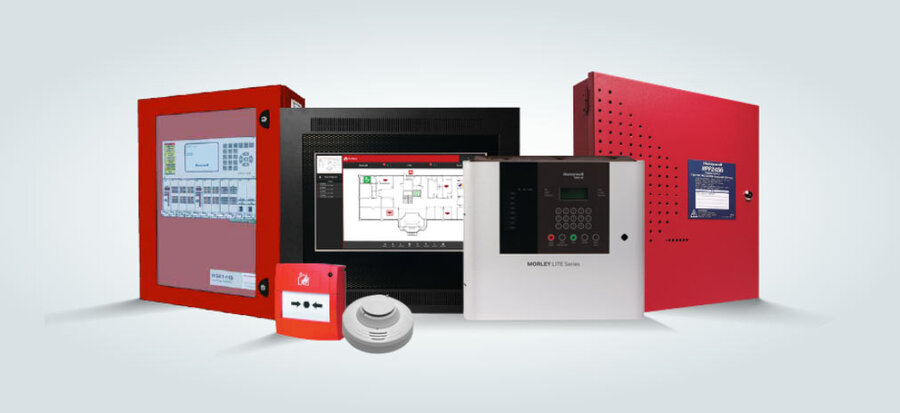
Ensure prompt response to protect your property and people!
Today, fire alarm monitoring is so critical that it’s a building requirement in most municipalities around the country. It has saved lives and prevented further damage from fires, saving the subject property and even neighboring properties. So, what is fire alarm monitoring?
In today’s blog, we’ll briefly explore the significance of fire alarm monitoring and its advantages in working to protect your building. Let’s dive in!
SEE ALSO: Protect Your Fire Alarm System with Cutting-Edge Cybersecurity
What Is Fire Alarm Monitoring, Anyway?
Fire alarm monitoring can be defined as the use of an automated communication network to ultimately notify first responders and owners of a signal activation (such as Alarm, Trouble, Supervisory, Low Battery, Sprinkler Tamper, or Power Failure) originating from a particular fire protection system.
How Does a Fire Alarm Monitoring System Work?
In its simplest form, a fire alarm monitoring system consists of a fire alarm control panel (FACP), communicator equipment, and a 24/7 staffed center with highly trained operators who provide watchful services and respond to critical events. This center is known as a central monitoring station or “central station” for short.
When a fire alarm panel receives an event from an initiating device like a smoke detector, the panel passes along news of this event in the form of a signal to the outside world via a communicator. The communicator is typically connected to or monitored by a central station, where a live operator receives the signal and immediately takes action depending on the signal’s severity. In the most extreme emergencies, they will call 911 for the building owner if indicated in the established response directions.
Under this system, automated 24/7 monitoring is achieved. Fire monitoring can be set up to supervise various fire protection systems such as fire alarms, fire pumps, fire sprinklers, and fire suppression systems.
The Advantages of Fire Alarm Monitoring
Fire alarm monitoring dramatically improves EMS response times. The saved minutes can reduce damage, save lives, and provide more accurate information to the first responders answering the call.
In evacuation level emergencies, it allows building occupants to flee the space without having to worry about calling 911. Moreover, if the building happens to be vacant, monitoring will call EMS or take other actions for the building owner.
Lastly, local fire codes require modern buildings to have fire alarm monitoring. A building insurance policy may also require it and may decrease your premium if it exists on the premises.
At Phoenix Pacific, we are committed to helping building owners and managers make their spaces as safe as possible. Contact our team today to discover the many ways our fire safety solutions can make that happen!

